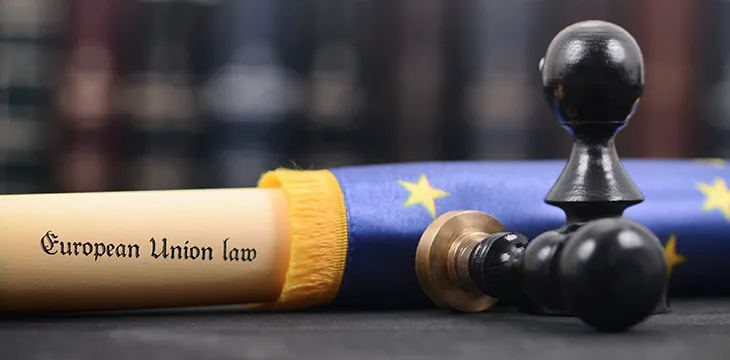|
Getting your Trinity Audio player ready...
|
In an apparent step towards tighter control of the cryptocurrency industry, Brussels-based think tank Bruegel has proposed better European Union (EU)-level regulation for cryptocurrency exchanges and clearer rules on initial coin offerings (ICOs), Reuters reported. The goal, according to the Bruegel document seen by the news outlet, was “to control risks” all while exploiting the massive potential of the blockchain industry.
EU authorities have yet to implement comprehensive regulation for the cryptocurrency and blockhcain sector, given its relatively small size and low percentage of BTC-euro trading. That’s not to say, however, that they weren’t concerned with the market’s volatility as well as the risk of fraud and money laundering.
Constant reports on scam ICOs and frauds on a massive scale, such as the most recent one involving the supposed salvage of a Russian ship sunk in 1905 with billions of dollars’ worth of gold on board, have dealt a terrible blow to the industry’s confidence. EU-wide regulation also deals a blow to efforts being made in EU countries such as Malta, which was looking to go it alone on the crypto front in an attempt to gain a slice of the supposed big money being poured into the industry. So far, the country has been mired in its regulatory efforts, which operators have termed as unworkable.
The imminent expansion of crypto exchange operators in Europe, coupled with the considerable interest shown by EU countries in ICOs, is prompting regulators to take a closer look at the industry.
Several months ago, Hong Kong-based Binance announced its plans to move to Malta. Following in Binance’s footsteps were other exchanges such as OKEx, Zb.com and Bittrex, which have all announced some sort of operation in Malta although so far there has been nothing tangible in terms of operation.
According to Bruegel, regulating cryptocurrencies like Bitcoin is impossible due to their virtual nature. However, the entities dealing with the instruments—such as exchanges—could be “subject to stricter disclosure rules or even be banned.” Likewise, “[crypto] mining farms can be forbidden,” as it’s currently being done in countries like China, the think tank said.
On Binance’s planned move to Malta, Bruegel pointed out that it could “suggest that there is scope for regulatory arbitrage,” although the think tank noted that EU authorities might need to treat exchanges eyeing jurisdictions with lighter jurisdictions with kid gloves as part of the region’s effort “to experiment and learn about the best approaches to this fast-developing technology.”

 06-30-2025
06-30-2025 





